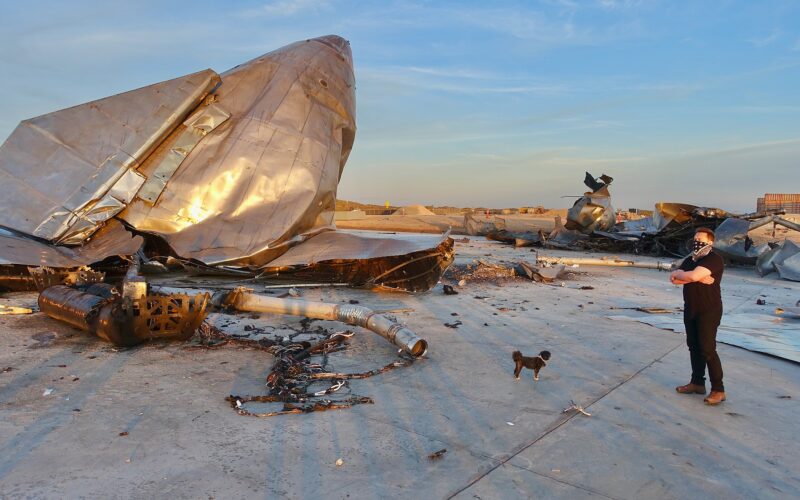Until SpaceX submits a key mishap investigation report to the Federal Aviation Administration (FAA) and fulfills all required actions, its Starship will remain grounded, an FAA spokesperson told the San Antonio Express-News.
SpaceX CEO Elon Musk has been hinting about the spacecraft coming back for a second launch not long after the first one in Texas ended in a fiery explosion. In a Twitter post on June 13, 2023, he claimed the Starship will fly in “6 to 8 weeks”.
Despite Musk’s’ optimistic predictions, the explosion led to a wide-ranging investigation, overseen by the FAA, NASA, and the National Transportation Safety Board (NTSB).
This probe can only be closed once SpaceX provides the final report approved by the FAA, aiming to determine the root cause of the accident and establish preventive measures for the future.
“The FAA will not allow a return to flight operations until it determines that any system, process, or procedure related to the mishap does not affect public safety or any other aspect of the operator’s license,” an FAA spokesperson told the San Antonio Express.
Furthermore, a coalition of environmental groups now is suing the FAA itself for issuing the Starship launch license. The coalition claims that FAA failed to adequately evaluate the potential harm that the Starship could cause to the South Texas ecosystem and nearby communities.
Shortly after the Starship exploded, a “mystery material” fell from the sky, worrying the locals even miles away from the Boca Chica, Texas launch site about its potentially toxic origin.
At the time, Musk acknowledged the problem, promising adjustments to prevent the material from scattering across the region again.
However, researchers at the University of Central Florida and Rice University have analyzed the mystery material and decided that it was beach sand pulled from underneath the launch pad.
“We can conclude it was definitely not any kind of health hazard,” Philip Metzger, a planetary scientist at the University of Central Florida told the Houston Chronicle.
According to Metzger, the heat and pressure from the rocket created fresh cracks in the launch pad. This resulted in a volcanic-like eruption that propelled sand into the air, eventually carrying it away from the launch pad.
The full research “will be published in a peer reviewed journal,” he added in a Twitter post.
The FAA and SpaceX also have denied most other environmental allegations and asked the court to dismiss the lawsuit.
Even so, the FAA is refusing to speculate on exactly when the Starship will be launched again.
“Public safety and actions yet to be taken by SpaceX will dictate the timeline,” FAA told the FLYING magazine.

